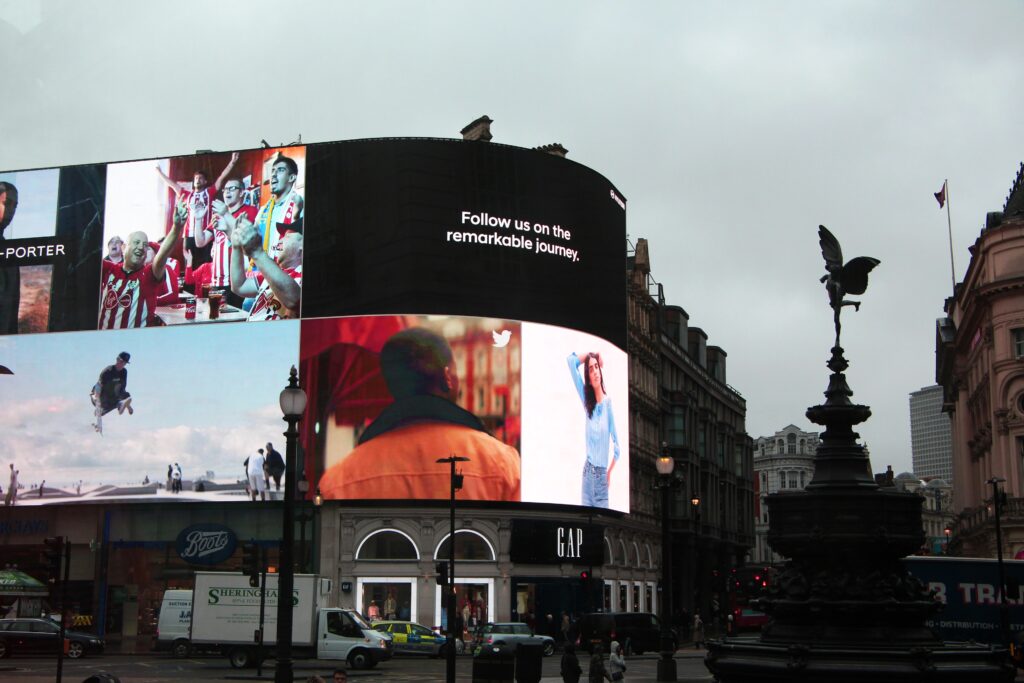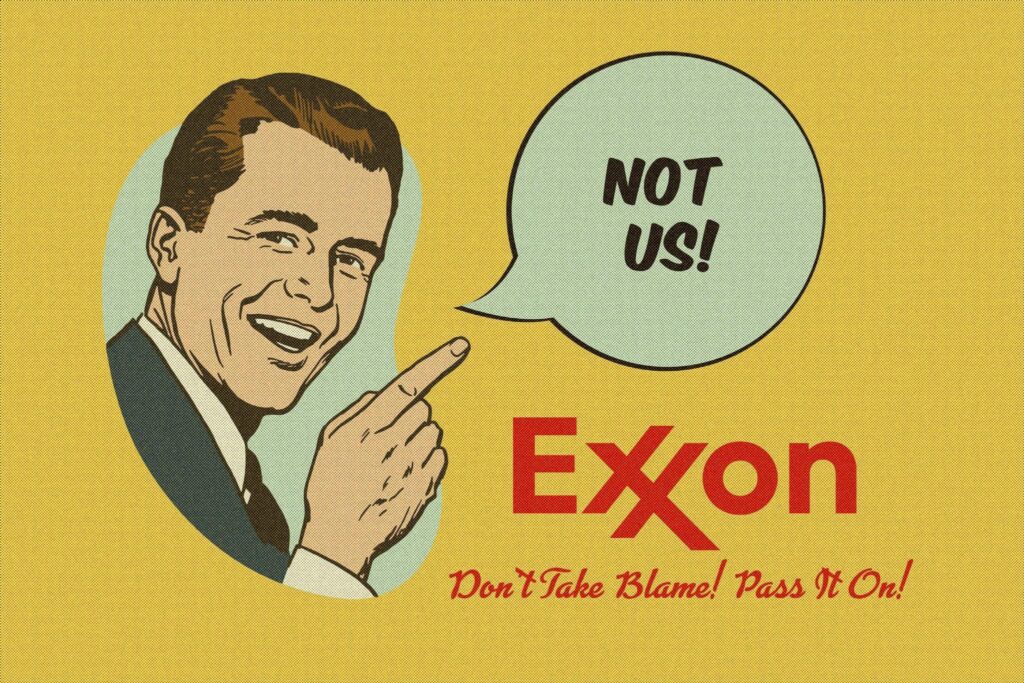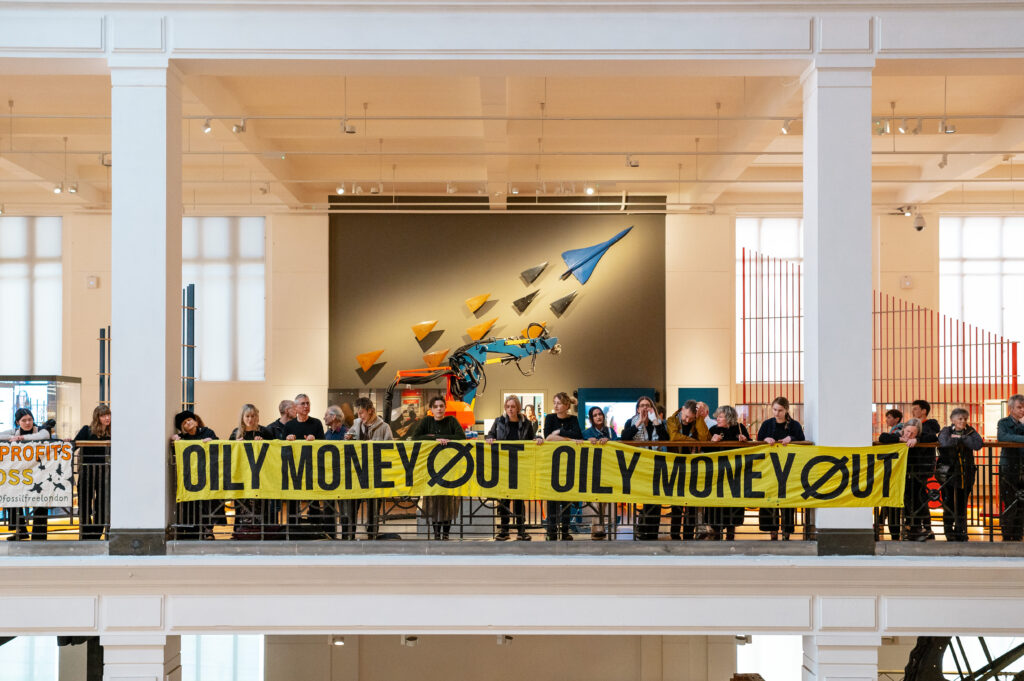Polina Zabrodskaya was well on her way to the top of the creative advertising game. But when she challenged a major client’s environmental and labour-related claims, she says her career path quickly crumbled.
Now, Zabrodskaya is taking her former employer, AMV BBDO, to an employment tribunal. She charges that after she raised concerns about misleading information in briefs prepared by Mars, the global confectionery and pet food company, the agency effectively drove her out of her job.
AMV BBDO, a UK subsidiary of the New York-based multinational holding company Omnicom, has denied Zabrodskaya’s claims, which were first reported by the Financial Times in March.
Zabrodskaya has filed two separate claims against AMV BBDO. The first — for discrimination and harassment — is set to test UK equality laws, which provide protection for a belief in climate change. The second claim is for “constructive dismissal”: situations where an employee resigns because the employer has created an intolerable environment at work.
An AMV BBDO spokeswoman told the Financial Times that the company would “refute” Zabrodskaya’s “various claims.”
Mars declined to comment on AMV BBDO’s “internal employment dispute”, but told the FT that it was investing “billions of dollars” in making its business “more sustainable”, and that its advertising aligned “with existing laws, local codes, and our own internal sustainability standards which are guided by the latest available science”.
Zabrodskaya joined AMV BBDO in 2018 and rose steadily to the senior role of creative partner. During her first few years at the agency, she led teams behind award-winning campaigns for prestigious clients such as gin brand Bombay Sapphire and London’s Design Museum.
In 2021, Zabrodskaya became concerned that the briefs she’d received for promoting the sustainability programmes run by Galaxy, a Mars chocolate brand, conflicted with what she was reading elsewhere: reports by researchers and campaign groups describing the prevalence of child labour, deforestation, and underpaid workers in West Africa, where Mars sources much of its cocoa.
Mars’ website says the company is accelerating its efforts to stop deforestation in its supply chain and has programmes to support farmers and prevent child labour.
Zabrodskaya says that after she raised her concerns within AMV BBDO as well as with Mars executives, she was reprimanded and excluded from meetings.
Zabrodskaya says that later, when she questioned sustainability claims made by Sheba, a Mars pet food brand, she was suspended by AMV BBDO. (There is no suggestion that Mars had anything to do with these alleged responses).
Zabrodskaya decided to leave AMV BBDO in April 2024, after internal inquiries by two external HR consultants, prompted by her complaints, found no evidence that the company had treated her wrongly.
With the help of the legal group Climate Whistleblowers, Zabrodskaya is going public with her story, in the hopes of encouraging other creatives to reflect on the advertising industry’s role in protecting corporations from scrutiny of their social and environmental credentials.
This interview was conducted via email by DeSmog global investigations editor Matthew Green and investigative reporter TJ Jordan — a former agency creative himself.
DeSmog: Your concerns about the advertising campaigns centred on what you considered were unsubstantiated social and environmental claims. Why are these issues so important to you?
Polina Zabrodskaya: I grew up in Tula, one of the most polluted regions in Russia. There was black snow and orange clouds. Officially, though, everything is fine. The factories follow strict regulations. Experts appear on TV to explain that the orange clouds aren’t dangerous.
I suppose I learned early on that reality and the official version aren’t always the same thing.
What prompted you to raise concerns with your colleagues and clients about the claims they were making in these ads?
Google. It’s really not that hard to find reports claiming that our client’s supply chain realities didn’t match the beautiful story we were asked to create in their sustainability campaigns. Dozens of articles. Statements from reputable NGOs. Detailed investigations.
It takes a particular kind of incuriosity to accept “100 percent responsible” as a creative director without asking what the claims actually mean. And once you read those reports, you can’t unsee the bigger picture.
Why did you decide to make your case public?
Over the years, I’d tried everything — internal chats, meetings with top managers, direct conversations with clients, a formal grievance to [the] head office in New York. Going public was the last logical step.
I was in a relatively secure position — late enough in my career, with savings, connections, and experience — to take the risk of blowing it all up. If no agency ever hires me again, I’ll survive. That’s just not true for most people.
I think the more senior you are, the more responsibility you have to take these risks. Many activist employees are juniors, but those who benefit most from greenwashing are top managers. Our enormous salaries are funded by profits built on exploitation and environmental destruction. So when a VP says, “There’s nothing I can do,” it’s bizarre.
There’s always something you can do if you’re a CEO, a president, or whatever title you’ve fought so hard to achieve. You wanted power — now you have it. Use it.
Holding the Ad & Public Relations Industry Accountable
Get weekly updates on our coverage of ad and PR sector greenwashing for Big Oil, and the younger generation of climate-conscious employees trying to steer their industry onto a sustainable path.
To what extent do you believe others in the advertising industry share your concerns over greenwashing?
I’ve never met anyone who says, “You know what, I’d love to help a billion-dollar corporation cover up child labour”. That’s where documentaries like Seaspiracy go wrong. There’s no conspiracy. There’s industry-wide, self-protective denial.
It’s devastating to know your work causes real harm, so people suppress that knowledge. They build elaborate mechanisms not to know.
A colleague I like and respect once wrote to me: “It might not be the ideal way ‘round, but I hope that by starting to talk externally about sustainability, it will force them [Mars] to self-scrutinise and do better in future”.
I replied that trying to talk a global company into authentic efforts on sustainability through their own ads sounds like trying to inspire Putin to become a democratic leader with films about his commitment to democracy. It’s the same logic. I’m not even exaggerating.
Greenwashing is terrible for the planet, but it’s also awful for the people who are involved in it. It’s soul-destroying. No one really thrives under those conditions — except the corporations.
What is stopping more people in advertising agencies from speaking out?
Capitalism. To push back against greenwashing with the force it actually requires — the kind that might break through corporate denial — is to risk your mortgage. So most people don’t. And I honestly don’t judge them.
Speaking out as an individual moral act is largely pointless. Huge personal risk, little tangible gain. We can rinse yogurt tubs with the same effect and far less trouble.
We need systemic change. The world is structurally optimised for extreme exploitation — so whistleblowers need structural support of equal — if not greater — weight: a powerful, well-organised movement, with skilled lobbyists, smart lawyers, and trained communications specialists acting together. We don’t have that yet. So people stay silent.
Do you have a message for others in the industry who may also be considering stepping forward as whistle-blowers?
That quiet depression and hopelessness you’re feeling, that sense of being lost, is your psyche telling you that you’re suffering. You’re not imagining it. It’s real. It’s not burnout. It’s not a midlife crisis. It’s a moral injury, the PTSD-like symptoms people experience when the work they do goes against their deepest beliefs. You are a human, stuck in an inhumane job.
You will feel so much better about yourself, and about life, once your values are aligned with how you spend your days. And you won’t have to do it alone. There are organisations that can support you.
You can also do something useful without disclosing your identity. Contact Climate Whistleblowers. They’ll help you figure out the best path for you.
Do you believe that advertising can be a force for good when it comes to social and environmental topics?
Absolutely. David Attenborough said it better than I could: The climate crisis is a communications challenge. So is the crisis of democracy. We need better ways of addressing our shared existential threats without fear-mongering and without delusional optimism.
What is next for you? Do you plan to continue working in advertising?
I’m in a transition period, which is both exciting and terrifying for someone who’s had a full-time job for 15 years. About a third of my work is still advertising, another third is long-term creative projects, and the final third involves working with NGOs.
That balance might shift. I’m trying every new thing I can while navigating the economic reality of living in London. I think our collective creative potential should be used for something better than greenwashing cat food. So I’m trying to figure out what that might look like.
For more of DeSmog’s coverage of climate accountability in the advertising and public relations industry, please visit our series page, and our database profiling communications agencies working for major polluters.
This story was amended on June 4, 2025 to clarify the chronology of events that led to Zobradskaya’s suspension.
Subscribe to our newsletter
Stay up to date with DeSmog news and alerts







